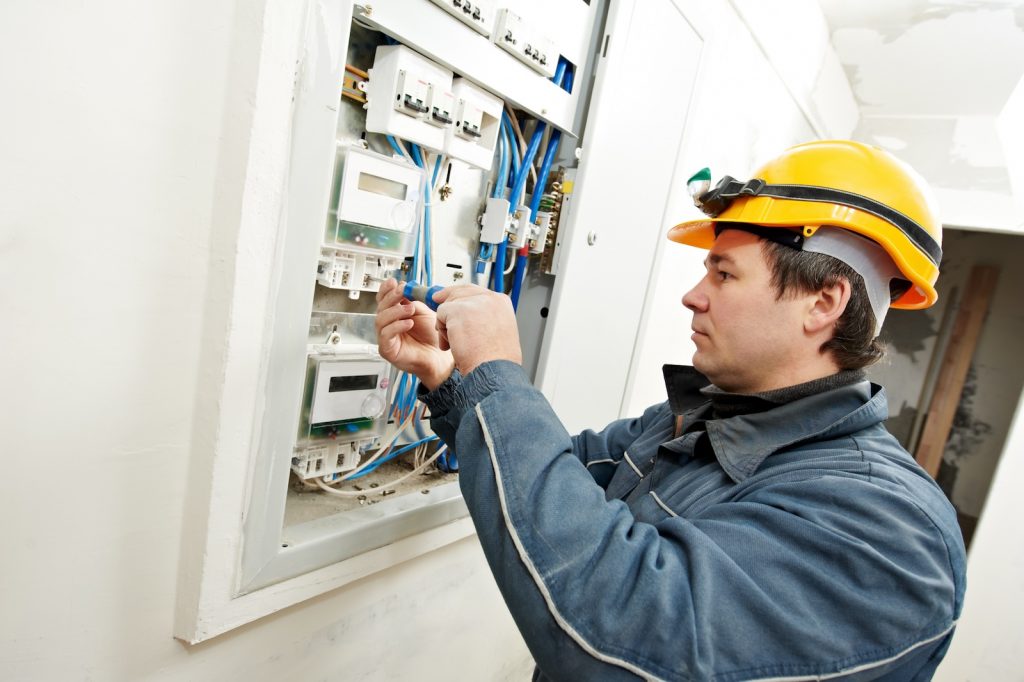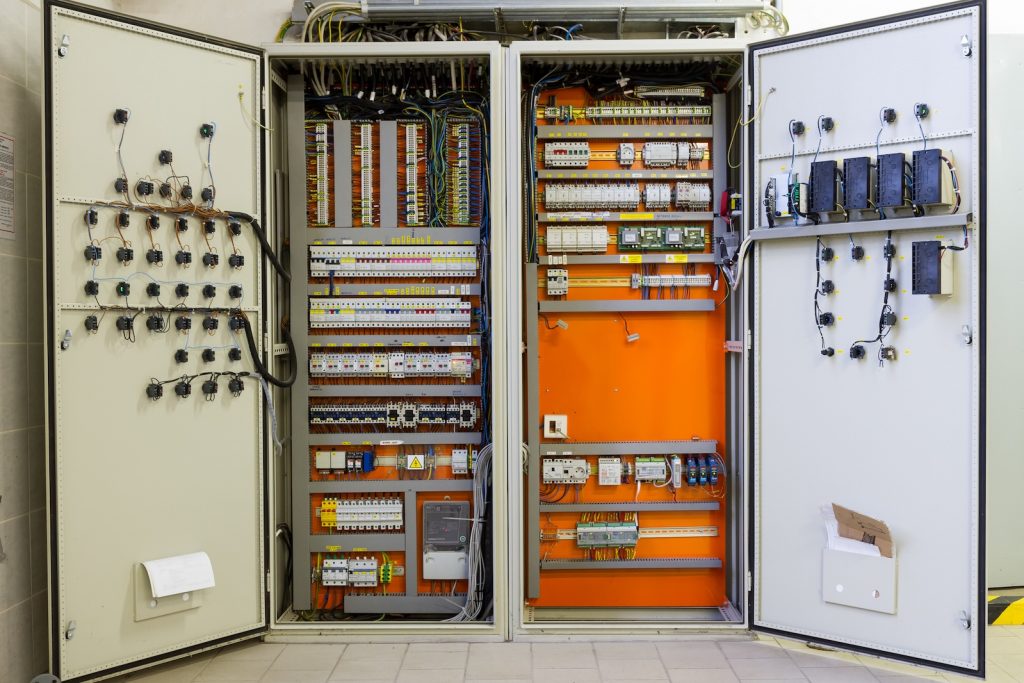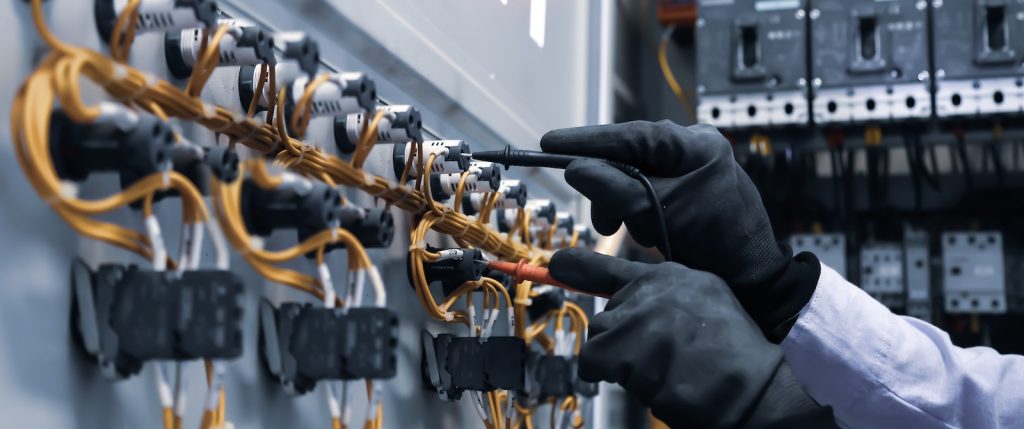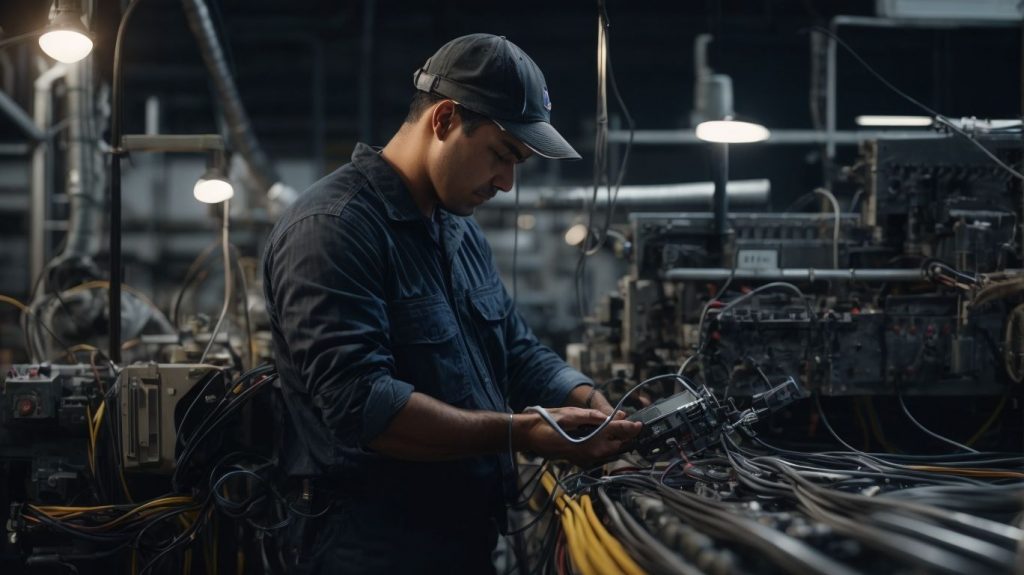An industrial electrician in Ontario is a licensed professional who specializes in providing electrical services for factories and industrial settings. They play a crucial role in maintaining and repairing electrical systems in manufacturing plants and ensuring they operate efficiently and safely.
To become an industrial electrician in Ontario, one must complete an apprenticeship program and pass the Electrician Certification Exam. This process ensures that they have the necessary knowledge and skills to handle complex electrical work in industrial settings.
The duties of an industrial electrician in Ontario vary, but they are primarily responsible for installing, maintaining, and repairing electrical systems and equipment in factories. This may include performing tasks such as installation of wiring and fixtures, troubleshooting and repairing electrical issues, and conducting regular maintenance checks to prevent downtime. They also handle various types of electrical work for factories, including installation of new equipment, upgrading old systems, and ensuring compliance with electrical codes and standards.
Benefits of Hiring an Industrial Electrician
There are numerous benefits to hiring an industrial electrician in Ontario to perform electrical work in your factory. These include:
- Expertise and knowledge of electrical codes and standards, ensuring quality and safety in all work performed.
- Ensuring compliance with relevant regulations and standards to avoid any legal issues or penalties.
- Efficient and timely electrical services to minimize downtime and keep operations running smoothly.
- Access to specialized tools and equipment, saving time and ensuring quality work.
One reputable electrical contractor in Ontario is Grace Instrumentation. They stand out for several reasons, including:
- Experience and expertise in industrial electrical work, with a team of skilled and licensed electricians.
- Commitment to safety and quality workmanship, prioritizing the well-being of employees and the integrity of the work.
- A comprehensive range of electrical services, including design, installation, and maintenance, providing a one-stop-shop for all electrical needs.
- Strong client relationships and customer satisfaction, with a track record of delivering high-quality work and exceeding expectations.
Key Points:
- An industrial electrician in Ontario plays a crucial role in ensuring the smooth operation of factories and industrial facilities.
- To become an industrial electrician in Ontario, one must meet specific requirements and have a thorough understanding of electrical codes and standards.
- Hiring an industrial electrician in Ontario offers benefits such as expertise in electrical work, safety and compliance, efficient and timely services, and access to specialized tools and equipment.
What Is an Industrial Electrician?
An industrial electrician is a skilled expert who is accountable for the installation, upkeep, and repair of electrical systems in industrial environments. They are responsible for handling intricate machinery, electrical components, and high-voltage systems, ensuring the safe and efficient operation of all equipment. Industrial electricians also have the task of identifying and resolving electrical problems and ensuring compliance with relevant codes and regulations. In addition, they may be involved in reading blueprints, inspecting electrical components, and conducting preventative maintenance to minimize downtime. Overall, an industrial electrician plays a vital role in maintaining the electrical infrastructure of industrial facilities.
What Is the Role of an Industrial Electrician?
An industrial electrician plays a crucial role in maintaining, repairing, and installing electrical systems in industrial settings. Their main responsibility is to ensure the efficient and safe operation of electrical equipment and systems. This involves troubleshooting any electrical issues, conducting preventive maintenance, and adhering to electrical codes and standards. Additionally, industrial electricians work with other professionals to carry out electrical projects and contribute to the overall productivity and safety of industrial facilities.
Get ready to shock and awe – here are the requirements to become an industrial electrician in Ontario.
What Are the Requirements to Become an Industrial Electrician in Ontario?
In order to become an industrial electrician in Ontario, there are specific requirements that must be met. The first step is completing a 309A Construction and Maintenance Electrician apprenticeship. Additionally, it is mandatory to obtain a Certificate of Qualification through the Ontario College of Trades. This certificate serves as validation of an individual’s competence in the trade and is necessary for legally practicing as an industrial electrician in Ontario. It is also important to gain practical experience and stay updated with the latest industry standards and technologies in order to have a successful career in this field.
What Are the Duties of an Industrial Electrician in Ontario?
The duties of an industrial electrician in Ontario encompass a wide range of tasks that are essential for maintaining electrical systems in industrial settings. These tasks include:
- Installation
- Inspection
- Maintenance
- Repair of electrical equipment and components
It is also the responsibility of industrial electricians to ensure that all electrical systems comply with Ontario’s electrical codes and standards. Troubleshooting is another crucial duty, as they must be able to identify and resolve any electrical issues to ensure uninterrupted operations. Additionally, industrial electricians may also be responsible for implementing system upgrades and modifications to improve efficiency and safety.

What Types of Electrical Work Do They Perform for Factories?
Industrial electricians in factories perform a variety of electrical work, including installing and maintaining electrical systems, troubleshooting equipment, and repairing electrical components. They also handle tasks such as wiring, lighting, and power distribution, ensuring that the electrical infrastructure meets safety and compliance standards.
When working in factories, industrial electricians are responsible for keeping production lines running smoothly by addressing electrical issues promptly and efficiently.
If you’re considering a career as an industrial electrician, gaining expertise in factory-specific electrical work is crucial for excelling in this field. Some examples of the types of electrical work they perform for factories include:
- Installation, maintenance, troubleshooting, and repair of electrical systems, equipment, and components.
- Handling tasks related to wiring, lighting, and power distribution to ensure that the factory’s electrical infrastructure is safe and compliant with regulations.
This specialized knowledge and skill set is essential for ensuring the smooth operation of production lines in factories.
What Are the Common Tasks of an Industrial Electrician?
The common tasks of an industrial electrician involve a variety of electrical work in factories and industrial environments. These tasks include:
- Installing, maintaining, and repairing electrical components and systems.
- Reading and interpreting technical diagrams and blueprints.
- Troubleshooting electrical problems and finding solutions.
- Inspecting electrical systems to ensure they meet safety standards.
- Working with other professionals, such as engineers and maintenance staff, to optimize electrical systems.
What Are the Benefits of Hiring an Industrial Electrician in Ontario?
When it comes to industrial electrical work, it is crucial to hire a professional with the necessary expertise and knowledge. This is where an industrial electrician in Ontario comes in. In this section, we will discuss the various benefits of hiring an industrial electrician in Ontario. From ensuring safety and compliance to providing efficient and timely services, an industrial electrician brings a unique set of skills and resources to any project. Let’s dive into the specific advantages that come with hiring a professional in this field.

1. Expertise and Knowledge of Electrical Codes and Standards
- Demonstrated expertise and knowledge in interpreting and applying electrical codes and standards.
- Stay updated with the latest revisions and amendments to electrical codes and standards to ensure compliance.
- Ensure all electrical work follows relevant regulations and safety requirements.
- Regular training and professional development to maintain a strong understanding of electrical codes and standards.
2. Ensures Safety and Compliance
- Regularly inspect electrical systems to ensure safety and compliance with standards.
- Implement and follow safety procedures and protocols to minimize hazards in the workplace.
- Stay updated with the latest electrical codes and regulations to maintain compliance.
- Provide training and education to staff on safety measures and best practices for electrical work.
3. Efficient and Timely Electrical Services
- Thorough Planning: Prioritize tasks and create a detailed schedule.
- Skilled Workforce: Assign qualified electricians to each task.
- Adherence to Deadlines: Constant monitoring to ensure tasks are completed on time, providing efficient and timely electrical services.
- Utilization of Technology: Implement advanced tools and techniques for efficient service delivery, including the introduction of electric lighting systems in the late 1800s which significantly improved efficiency and timely completion of industrial tasks, revolutionizing the industrial landscape.
4. Access to Specialized Tools and Equipment
- Access to Specialized Tools and Equipment: Industrial electricians have access to a variety of specialized tools and equipment, including wire strippers, voltage testers, conduit benders, power drills, multimeters, cable pullers, and hydraulic benders. These tools allow them to perform precise and efficient electrical work.
- Equipment Usage: They utilize these tools and equipment to ensure accurate installations and maintenance.
- Safety Gear: To ensure safety during electrical tasks, industrial electricians use personal protective equipment (PPE) such as insulated gloves, safety glasses, and hard hats.
Their shocking level of experience and commitment to safety will electrify your satisfaction with their industrial electrical services.

What Sets Grace Instrumentation Apart as an Electrical Contractor in Ontario?
As a leading electrical contractor in Ontario, Grace Instrumentation stands out for its exceptional services and commitment to excellence. With years of experience and expertise in industrial electrical work, our team has the knowledge and skill to handle any project with precision and efficiency. Safety and quality workmanship are at the core of everything we do, ensuring that our clients receive the best possible service. From installation and maintenance to troubleshooting and repairs, our comprehensive range of electrical services meets all the needs of our diverse clientele. We pride ourselves on building strong client relationships and prioritizing customer satisfaction in every project we undertake.
1. Experience and Expertise in Industrial Electrical Work
- Strong Background: A reputable industrial electrician possesses extensive experience and expertise in handling complex electrical systems within industrial settings.
- Technical Proficiency: They are skilled in managing industrial-scale electrical installations, repairs, and maintenance, ensuring seamless operations.
- Specialized Knowledge: Industrial electricians are well-versed in industrial-specific electrical components and systems, enabling them to troubleshoot and resolve issues effectively.
- Regulatory Compliance: They adhere to strict industry regulations and standards, promoting safety and operational efficiency.
Pro-tip: When seeking an industrial electrician, make sure to prioritize their experience and expertise in industrial electrical work to ensure reliable and high-quality services.
2. Commitment to Safety and Quality Workmanship
- Adherence to Safety Protocols: Demonstrating a commitment to safety by strictly adhering to all electrical safety protocols and guidelines.
- Quality Workmanship: Ensuring high-quality electrical work by employing skilled professionals and utilizing premium materials.
- Ongoing Training: Continuously providing training and skill development to stay up-to-date with the latest safety measures and industry best practices.
Pro-tip: When hiring an industrial electrician, be sure to inquire about their safety record and quality control measures to ensure top-notch workmanship. For more information about electrical safety, check out the ESA here: https://esasafe.com/
3. Comprehensive Range of Electrical Services
- Electrical Wiring and Installation
- Electrical Maintenance and Repairs
- Diagnostic Testing and Troubleshooting
- Upgrades and Retrofits
- Control System Design and Integration
When searching for electrical contractors, be sure to choose one that offers a comprehensive range of electrical services to cover all of your industrial electrical needs with efficiency and effectiveness.
4. Strong Client Relationships and Customer Satisfaction
- Effective Communication: Maintaining open lines of communication to understand client needs and concerns.
- Consistent Quality: Delivering high-quality work to meet and exceed client expectations.
- Adaptability: Being flexible to accommodate client preferences and changing requirements.
- Professionalism: Upholding professional conduct to build trust and rapport with clients.
Did you know? Strong Client Relationships and Customer Satisfaction are crucial for long-term business success and growth.

Frequently Asked Questions
What is an Industrial Electrician and what do they do?
An Industrial Electrician is a skilled tradesperson responsible for installing, maintaining, troubleshooting, and repairing electrical fixtures, control equipment, and wiring in industrial settings such as factories and energy systems.
What is the Red Seal Program and how does it relate to the Industrial Electrician trade in Ontario?
The Red Seal Program is the national standard for skilled trades across Canada. The Industrial Electrician trade is part of this program, and upon completion of the apprenticeship program and passing the certifying exam, an individual will be recognized as a skilled Industrial Electrician under the Red Seal Program.



